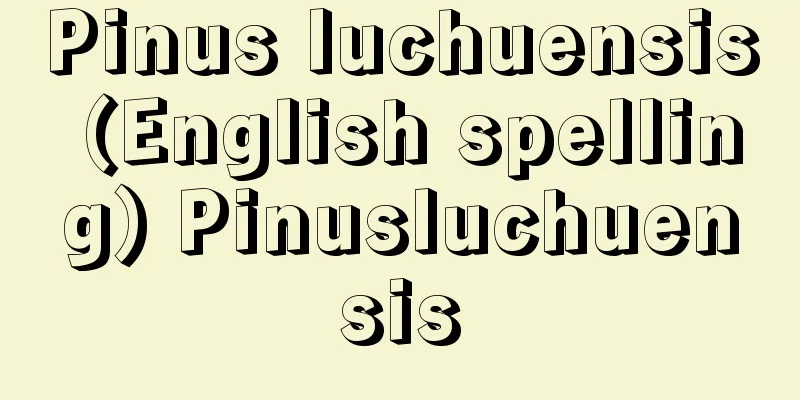Words - Tango

|
The smallest unit of language that expresses a single coherent meaning and has an independent grammatical function. It is also simply called a "word." In the case of phonographic writing such as the Roman alphabet, words are treated as units divided by spaces. Neko ga iru. is a sentence consisting of three words. Since words have a single coherent meaning, the same "kawa" has different meanings for "river" that means flowing water and "kawa" that covers the outside of plants and animals, so they are different words. The problem with the independent form is that nai, which means negation, is a suffix that is part of a word in kaka nai "do not write," but becomes an independent word in takaku nai "not high." The kaka- in kaka-nai is a morpheme that cannot be used to form an utterance on its own, and it combines with the following -nai to form the word kakanai. Therefore, in this case, -nai is also considered to be a suffix that has lost its independence. In contrast, takaku is used alone as an utterance, so it is a free form. So, takaku nai is a phrase consisting of two words. In this way, the same nai can be a word or not. The distinction is based on separability. If another element is inserted between the two elements, it becomes separable. If the word mo "mo" is inserted between these two elements, it cannot be called kakamonai, but it can be called takaku mo nai. In other words, the nai in kakanai is not a word because it is not separable, but is merely a negative suffix. The nai in takaku nai is separable, so it qualifies as a word, and so a space is inserted between takaku and nai to mark the break between words. By the same criterion, tonari no ko "the child next door" is a phrase consisting of three words, but takeoko "a bamboo shoot" is one word. It can be called "the little child next door," but not "the little child of bamboo." Words have grammatical functions. In "takai" and "takasa," "i" is a combining morpheme that indicates an adjective, and "sa" is a combining morpheme that indicates a noun. When combined with these endings, "takai" functions grammatically as an adjective, and "takasa" functions grammatically as a noun. [Koizumi Tamotsu] Source: Shogakukan Encyclopedia Nipponica About Encyclopedia Nipponica Information | Legend |
|
一つのまとまりある意味を表し、独立した形で文法的働きをもつ言語の最小単位。単に「語」ともいう。語は、ローマ字のような表音文字表記の場合は、余白によって区分される単位として扱われる。Neko ga iru.は3語からなる文である。単語は一つのまとまりある意味をもつから、同じ「カワ」でも、水の流れる「川」と動植物の外側を覆う「皮」では意味が違うので、異なる語である。独立した形という点に問題がある、否定を意味するnaiも、kakanai「書かない」では語の一部をなす語尾であるが、takaku nai「高くない」では独立した語となる。kaka-naiのkaka-の部分は単独で発話をつくることのできない結合形式の形態素であって、次にくる-naiと結合してkakanaiの1語となる。したがって、この場合の-naiも独立性を失った語尾とみなされる。これに対し、takakuのほうは単独で発話として用いられるから自由形式である。そこで、takaku naiは2語からなる句である。このように、同じnaiが、語となる場合と語として扱われない場合とがある。その区別は分離性による。二つの要素の間に他の要素が挿入されれば、分離性があることになる。mo「も」という語をこれら二つの要素の間に差し入れてみると、kakamonaiとはいえないが、takaku mo naiとはいうことができる。すなわち、kakanaiのnaiは分離性がないので語ではなく、否定の語尾にすぎない。takaku naiのほうのnaiは分離性があるから語の資格をもつので、takakuとnaiの間に語の切れ目の余白を入れる。同じ規準からtonari no ko「隣の子」は3語からなる句であるが、takenoko「たけのこ」は1語である。「隣の小さい子」とはいえても、「たけの小さいこ」とはいえない。単語は文法的機能をもつ。「タカイ」「タカサ」における「イ」は形容詞を、「サ」は名詞を表す結合形式の形態素であって、これら語尾と結合した「タカイ」は形容詞、「タカサ」は名詞として文法的に働く。 [小泉 保] 出典 小学館 日本大百科全書(ニッポニカ)日本大百科全書(ニッポニカ)について 情報 | 凡例 |
Recommend
Water supply - Suido
〘noun〙① A path along which water flows. Also, a wa...
art theatre
...The name "Art Theatre Guild" was coi...
Meditation - Seiza
It means sitting upright with a unified mind for a...
Anti‐Fascism
Generally speaking, anti-fascism is the criticism ...
Okada Tamechika
Year of death: May 5, 1864 (June 8, 1864) Year of ...
Miyaji
After the Nanboku-cho period, this powerful clan w...
Overtaking sight distance - Oikoshishikyo
Strictly speaking, it is defined as the distance ...
Rassemblement Démocratique Africain (RDA)
Founded in October 1946 in Bamako by F. Houphouet-...
Abnormal weather - Ijōkishou (English spelling) unusual weather
A rare weather condition that occurs approximatel...
Keijo Incident (English)
Two incidents occurred in the capital, Keijo (pres...
Tetsuji Tazoe
A socialist of the Meiji period. Born on July 24,...
Guardafi [Cape] - Guardafi
…the cape at the northeastern tip of the African ...
ascribedstatus
… Social resources are allocated based on people&...
Affiliated organizations - Gaikaku dan tai
A general term for organizations that are separat...
The Kamo clan - Kamo no Kimi no Uji
…Originally, Hitokotonushi was the god of Mount K...





![Niihama [city] - Niihama](/upload/images/67cc6b1891bf3.webp)



